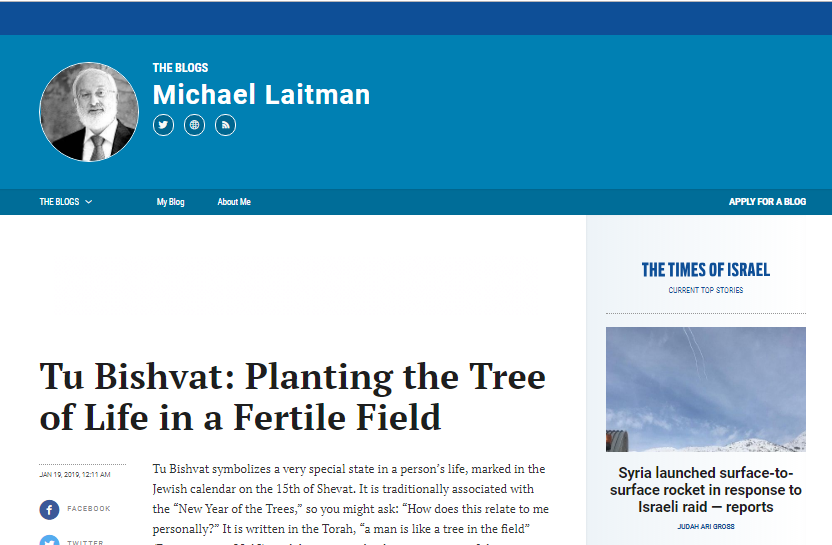
Tu Bishvat symbolizes a very special state in a person’s life, marked in the Jewish calendar on the 15th of Shevat. It is traditionally associated with the “New Year of the Trees,” so you might ask: “How does this relate to me personally?” It is written in the Torah, “a man is like a tree in the field” (Deuteronomy 20:19), and discovering the deeper meaning of this sentence is our key to a fruitful and flourishing existence.
The Tu Bishvat holiday represents the state in which we realize the fruit of our work of planting ourselves in the optimal environment to start growing and settling in a new life with new principles and goals, until we are finally rewarded with the fruit of the Tree of Knowledge, the Tree of Life. We reach Tu Bishvat when we discover a world of goodness and perfection, the opposite of the world that we currently perceive.
We do not reach Tu Bishvat all at once. We reach it only after a gradual process of development that begins with a seed, a desire that has an impression from our deepest spiritual root, which must be nourished properly until it grows into a tree that bears the fruit we will harvest: the attainment of the spiritual world of wholeness and tranquility. In order to reap that bounty, our optimum spiritual growth requires the influence of a spiritually supportive and encouraging society.
Similar to a tree that depends completely on its environment, so do we humans. The only difference between the two is that we can move ourselves to a new environment if our current one is harmful, while the tree cannot. Therefore, the first and most important phase of our spiritual development is the recognition of good and evil in our surroundings.
Each of us must perform a self-scrutiny and an examination of who surrounds us to determine whether we are placed in a fertile field, one that will help us advance toward our higher goal of fulfillment above the base earthly level, or whether we’re in poor soil, which distances us from that exalted purpose.
We can reach the desired state when we attain nature’s qualities of love, bestowal and connection. However, such a goal requires us to ascend above our egoistic nature—our narrow, short-sighted lens through which we try to exploit everything and everyone for our own advantage—and acquire an opposite, loving and giving nature where we positively connect to each other. To do so, we need not correct other people. We only need to correct ourselves.
Undergoing this transition from our egoistic nature to the altruistic nature is called a “correction” in the wisdom of Kabbalah. Correction is marked by a change in our attitude toward others, and until we make this shift, the wider, harmonious reality where we are all positively connected will continue to be concealed from us. We currently fail to see this reality where love and bestowal dwells between us because we perceive ourselves and our surrounding world according to our inner egoistic qualities, constantly thinking and acting based on the core question, “What’s in it for me?” When we will change our approach from receiving to giving, we will discover the upper, spiritual world—a world of love, bestowal and positive connection—and suddenly see a new level of existence, one in which everyone experiences balanced, positive and harmonious connections. Nature has conceived this state for all humanity, as it is written in the Babylonian Talmud, “I saw a reversed world.”
In fact, Kabbalists explain that the upper world is revealed as an inverted tree in the eyes of our world. In a field, the more a tree grows upward above the soil, the deeper its roots grow down below the trunk. Trees connect to each other underground through a sprawling network of roots. Similarly, we ascend by deepening our connection with others, because our attitude toward humanity is how we attain the upper spiritual forces.
When we reach such a level of connection, everything we previously perceived as broken will look as if it had been turned inside out, revealing reality as whole and purposeful. This is the state of Tu Bishvat. It is the feeling that Divinity (Shechina) fills the world, the revelation of an upper force that governs everything and gives a sense of eternity and endless fulfillment. This is the fruit of the Tree of Life that we will harvest at the end of our development, when it is ripe and we are ready to enjoy it.
Featured in The Times of Israel